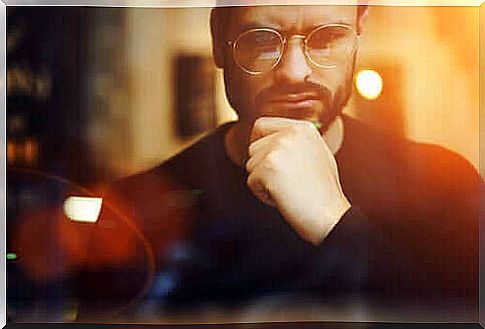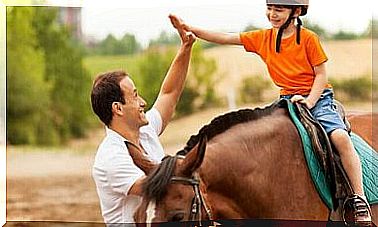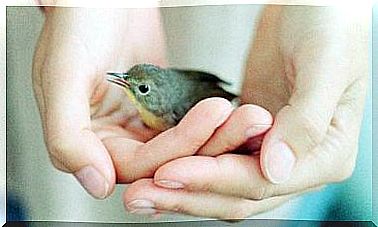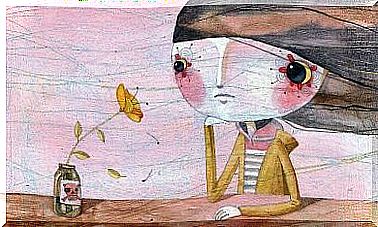Curiosity Is Not A Fault, It Is A Strength

People with curiosity have a super power that makes them different. As Albert Einstein rightly said, you don’t have to have a special talent to stand out. In fact, you just need to be passionately curious. This inner strength, this always attentive look, this interest for small details and for big challenges, this is what sets them apart from others.
Stephen Hawking defined curiosity as the willingness to never give up. It’s looking at the stars and not our feet. Indeed, our feet connect us to the ground and they are only interested in the common and the known. Thomas Hobbes, for his part, described curiosity as the “lust of the mind”. Finally, Victor Hugo saw in it a form of courage.
It is obviously possible to give many definitions to curiosity. However, there may be one that captures the very essence of the latter. It consists in saying that curiosity is the basis of learning and human progress. Indeed, curiosity is essential in children. She is his daily spark. It allows its psychological development. It is the engine that allows us to maintain this enthusiasm for knowledge.

Curious people are different
What is so special about people with curiosity? First of all, they have the ability to ask themselves questions that no one has asked before. For example, Isaac Newton was a physicist, astronomer, philosopher, mathematician, inventor, and even an alchemist. He did not establish the universal laws of motion and the universal law of gravity just because an apple fell on his head or even in a miraculous Eureka moment. In fact, his interest in learning knew no bounds and his curiosity was hard to satisfy.
Charles Darwin is another example of the tireless curious. He used to write letters by the thousands to leading experts around the world. Why ? To learn ! He wanted answers from the specialists of his time in order to answer his questions about plants, birds, insects, human behavior, expressions and emotions.
These two examples constitute what scientists define as “thirst for knowledge”. It is a highly developed type of motivation in some people. It is defined by the following processes.
Knowledge and discovery: the best rewards for the curious
In the field of learning psychology, we understand that curiosity is essentially a type of motivation that is based on retribution. The opportunity to discover something new, to find the answer to a question and the resolution of a long-standing riddle, challenge or doubt, is what motivates the curious person.
This is also the conclusion that emerges from a study carried out at the University of California and published in the magazine Cell. Matthias Gruber and his colleagues have shown that the brains of curious people work differently. The dopaminergic system has, for example, a higher intensity and a higher connection.
So this shows us that the brain of a curious child or adult experiences great satisfaction during the learning process. The curious person likes to overcome the obstacles associated with the research phases. The reward centers of the brain and the hippocampus are strongly stimulated in this type of profile.

Without curiosity, the human being loses his vital breath
Donald W. Winnicott, a pediatrician who later became a well-known psychoanalyst, wrote about this in the 1950s and 1960s. According to him, when human beings lose their curiosity, they lose their vital breath. But he also loses his creativity, his spontaneity and, in essence, his happiness is altered.
Why is this happening? From Winnicott’s experiments in those years, some people create a false self. They can be personalities who are frustrated with beings trapped by routine and their work, or even people with deep difficulties or unresolved trauma. In any case, their “luminous self” does not express itself.
If a person is not satisfied with their own life, their potential is not expressed. Motivation fades, so does the mood and, of course, curiosity disappears.
Find out what appeals to you and rekindle your curiosity
We are all creative. Indeed, we all hide great resources within us. However, our work, our studies, and the very way our company is designed does not encourage the curious mind to be seen. Indeed, the curious can sometimes be dangerous… They are able to defy the established rules and to defy the conventions. They challenge what is supposed to be acquired and which many prefer “not to touch”.
However, the picture becomes more beautiful when we open our senses and our experience. We have to look for a flavor of life that is unique to us. Something that sparks our interest and our passion. Our desire to be children again and our pleasure to discover and feel enthusiasm.
We live in a world where any doubt or question can be the subject of a search engine query. However, responses obtained in real life tend to be of greater value. Curiosity feeds on research, travel, meeting new people, critical and divergent thinking and above all a more alert and motivated gaze. As Stephen Hawking said, we need to look at the stars more often.
Finally, let us remember the words of the great writer Dorothy Parker who pointed out that to cure our boredom, we must be curious.










